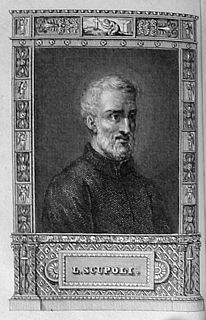A Quote by Johann Wolfgang von Goethe
The world runs on from one folly to another; and the man who, solely from regard to the opinion of others, and without any wish or necessity of his own, toils after gold, honour, or any other phantom, is no better than a fool.
Related Quotes
... you must hasten to oppose pernicious pride of mind, before it penetrates into the marrow of your bones. Resist it, curb the quickness of your mind and humbly subject your opinion to the opinions of others. Be a fool for the love of God, if you wish to be wiser than Solomon: 'If any man among you seem to be wise in this world, let him become a fool, that he may be wise' (I Cor. 3:18).
[S]uppose the mind of [a] friend of humanity were clouded over with his own grief, extinguishing all sympathetic participation in the fate of others; he still has the resources to be beneficent to those suffering distress, but the distress of others does not touch him because he is sufficiently busy with his own; and now, where no inclination any longer stimulates him to it, he tears himself out of his deadly insensibility and does the action without any inclination, solely from duty.
If a man is in any sense a real mathematician, then it is a hundred to one that his mathematics will be far better than anything else he can do, and that he would be silly if he surrendered any decent opportunity of exercising his one talent in order to do undistinguished work in other fields. Such a sacrifice could be justified only by economic necessity of age.
I consider myself to be a man of principle. But, what man does not? Even the cutthroat, I have noticed, considers his actions "moral" after a fashion. Perhaps another person, reading of my life, would name me a religious tyrant. He could call me arrogant. What is to make that man's opinion any less valid than my own? I guess it all comes down to one fact: In the end, I'm the one with the armies.
I suspect it was...the old story of the implacable necessity of a man having honour within his own natural spirit. A man cannot live and temper his mettle without such honour. There is deep in him a sense of the heroic quest; and our modern way of life, with its emphasis on security, its distrust of the unknown and its elevation of abstract collective values has repressed the heroic impulse to a degree that may produce the most dangerous consequences.
The Enemy wants to bring the man to a state of mind in which he could design the best cathedral in the world, and know it to be the best, and rejoice in the fact, without being any more (or less) or otherwise glad at having done it than he would be if it had been done by another. The Enemy wants him, in the end, to be so free from any bias in his own favour that he can rejoice in his own talents as frankly and gratefully as in his neighbour's talents--or in a sunrise, an elephant, or a waterfall.
To seek after any shape of God, and to assign a form and image to Him, is a proof of man's folly. For God, whosoever he be (if haply there be any other but the world itself), and in what part soever resident, all sense He is, all sight, all hearing: He is the whole of the life and of the soul, all of Himself.
A woman means by Unselfishness chiefly taking trouble for others; a man means not giving trouble to others...thus, while the woman thinks of doing good offices and the man of respecting other people's rights, each sex, without any obvious unreason, can and does regard the other as radically selfish.
The man who has successfully solved the problem of his relations with the two worlds of data and symbols is a man who has no beliefs. With regard to the problems of practical life he entertains a series of working hypotheses, which serve his purposes, but are taken no more seriously than any other kind of tool or instrument. In other words, symbols should never be raised to the rank of dogmas, nor should any system be regarded as more than a provisional convenience.
To scatter praise or blame without regard to justice is to destroy the distinction of good and evil. Many have no other test of actions than general opinion; and all are so far influenced by a sense of reputation that they are often restrained by fear of reproach, and excited by hope of honour, when other principles have lost their power.
In the absence of government each man learns to think, to act for himself, without counting on the support of an outside force which, however vigilant one supposes it to be, can never answer all social needs. Man, thus accustomed to seek his well-being only through his own efforts, raises himself in his own opinion as he does in the opinion of others; his soul becomes larger and stronger at the same time.




































